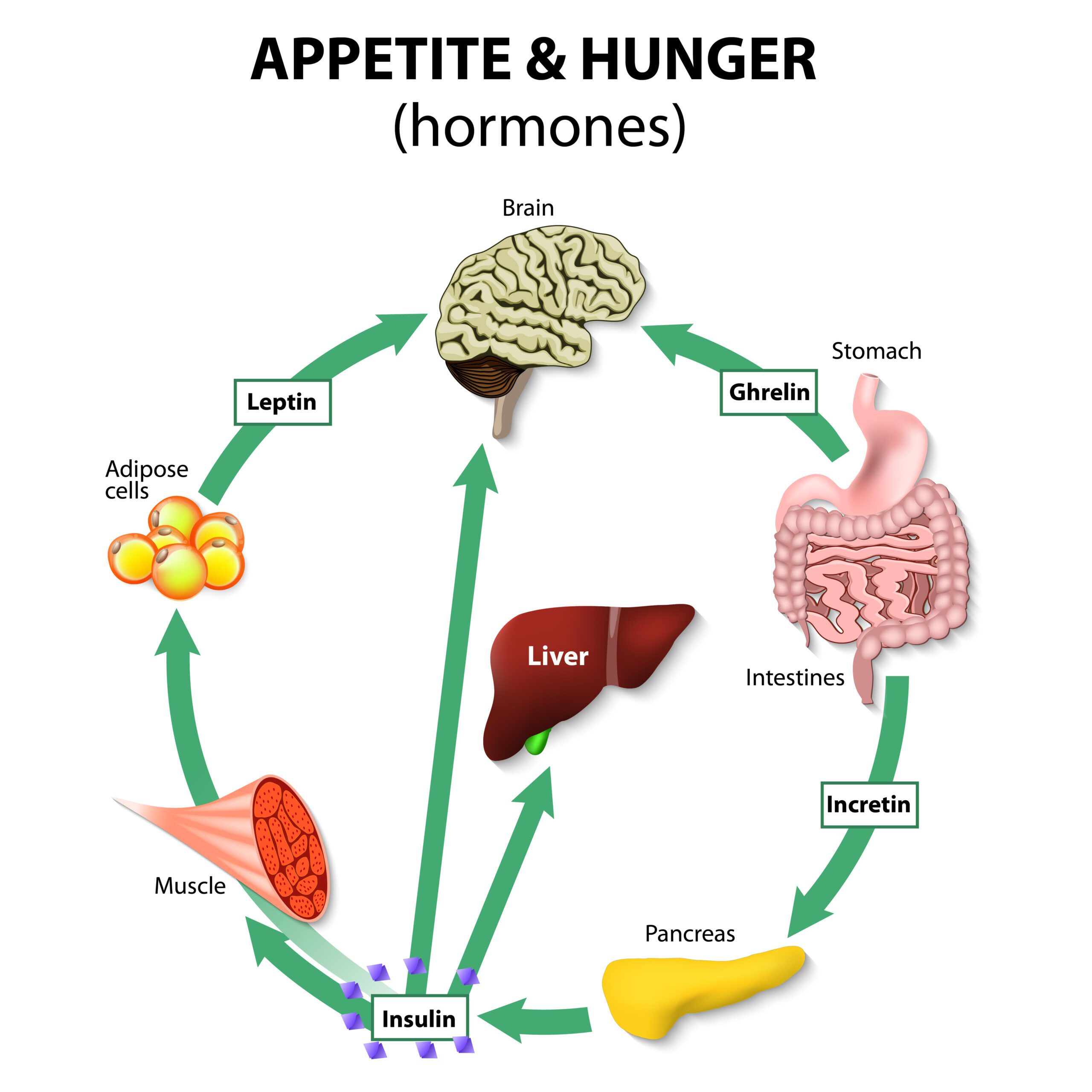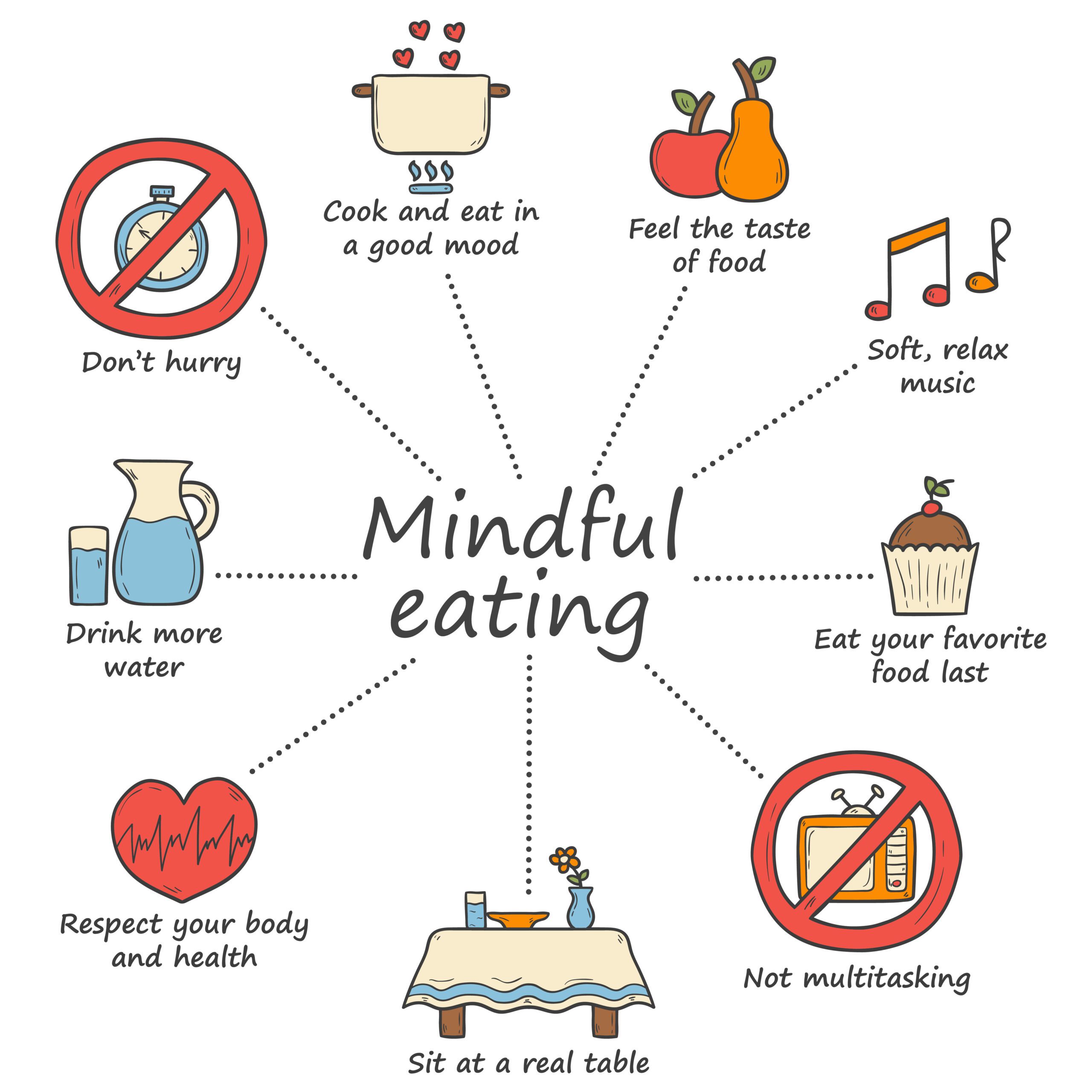The 7 Best Strategies to Suppress Your Appetite and Achieve Weight Loss Success
July 13, 2023
 514
514 
Written By: Jack Riess NASM Certified Personal Trainer and Life Long Researcher of Health and Longevity.
Appetite—the feeling of hunger or desire to eat—plays a crucial role in how we manage our weight
Like the fuel gauge in a car, it signals when it’s time to refuel our bodies.
But unlike a car’s straightforward fuel system, our body’s hunger signals can be influenced by a myriad of factors, leading to an imbalance in our energy intake versus our energy expenditure.
This imbalance is where appetite’s connection to weight management comes into play.
In this blog post, we’ll delve into the complex world of appetite control.
You’ll find a concise overview of the biological mechanisms of appetite and an exploration of why sometimes these mechanisms might lead us to overeat.
We’ll then shift our focus to seven effective strategies for appetite suppression, each scientifically backed and intended to support your weight loss journey.
These strategies, including hydration, exercise, mindful eating, and more, provide practical and sustainable ways to manage your appetite, promoting healthier eating habits and successful weight loss.
Understanding Appetite: A Brief Overview


When it comes to appetite, the human body is an intricate system, more complex than the most sophisticated computer.
It involves a series of hormones, including ghrelin (often called the hunger hormone) and leptin (the satiety hormone), which communicate with the brain to signal hunger or fullness.
When this system is working smoothly, we feel hungry when our bodies need fuel, and we feel satisfied when we’ve consumed enough.
However, our modern world is filled with a range of distractions and influences, such as stress, lack of sleep, and highly palatable processed foods, which can disrupt these delicate mechanisms.
These disruptions can lead to increased hunger and cravings, often causing us to consume more calories than we need and potentially leading to weight gain.
Understanding the connection between appetite and weight management is the first step in effective weight control.
By recognizing the factors that can influence our feelings of hunger and satiety, we can begin to take actions that keep our appetites in check, thus supporting our weight loss efforts.
As we explore the strategies that follow, remember that each one is a tool designed to help you better understand and control your appetite on your journey toward healthier living.
Strategy 1: Hydration for Hunger Control


Hydration plays a fascinating and often overlooked role in hunger control. Sometimes, our bodies may confuse thirst for hunger, which can lead to overeating.
It’s like getting your wires crossed—your body is signaling for water, but you interpret that as a need for food.
This connection between hydration and appetite is why drinking enough water can be a simple and effective strategy for appetite control.
Try drinking a glass of water before each meal; this can not only help fulfill your hydration needs but can also help you feel fuller and curb overeating. Another tip?
Try infused waters. Add a slice of lemon or cucumber to your water for a refreshing and appealing drink that will help you meet your hydration goals.
Scientific studies reinforce the importance of hydration for weight management.
One study published in the Journal of Human Nutrition and Dietetics found that people who increased their consumption of water by just 1% reduced their total daily calorie intake and their consumption of saturated fat, sugar, sodium, and cholesterol.
Strategy 2: Fiber-rich Foods for Satiety


Fiber plays a starring role in the world of appetite control and weight loss.
It slows down digestion and adds bulk to your meals, helping you feel fuller for longer.
It’s like a sponge in your stomach, soaking up water and expanding.
This sends signals to your brain that you’ve had enough to eat.
Adding more fiber-rich foods to your diet can help you naturally curb your appetite.
These can include whole fruits, vegetables, legumes, whole grains, and nuts.
For example, start your day with a bowl of oatmeal topped with berries, or incorporate more lentils and beans into your lunch and dinner recipes.
The connection between fiber and satiety is well-supported by science.
A comprehensive review study published in the Journal of Nutrition found that dietary fiber can effectively increase feelings of fullness and decrease feelings of hunger.
By increasing your fiber intake, you’re not just adding vital nutrients to your diet; you’re also adopting a powerful strategy for appetite control and weight management.
Strategy 3: Regular Exercise and Appetite Suppression


There’s more to exercise than just burning calories—it’s also a powerful tool for appetite control.
Engaging in regular physical activity helps regulate the hormones that control appetite, improving the balance between feelings of hunger and satiety.
Different types of exercises can have varying impacts on hunger.
Aerobic activities like swimming or running can suppress hunger by decreasing levels of the hunger hormone, ghrelin.
Strength training, on the other hand, can help increase muscle mass, which may boost metabolism and help control appetite in the long term.
As with any exercise regimen, it’s important to choose activities you enjoy to ensure consistency.
Research supports the connection between exercise and appetite regulation.
A study in the Journal of Endocrinology reported that moderate to high-intensity exercise suppresses ghrelin, the hunger hormone, which may help control appetite and support weight loss goals.
Strategy 4: Mindful Eating to Prevent Overeating


Mindful eating is an approach to food that involves fully focusing on the experience of eating and enjoying each bite.
It’s about being present in the moment, paying attention to the colors, smells, textures, and tastes of your food.
By doing this, you’re more likely to notice your body’s signals of fullness, which can help prevent overeating.
To implement mindful eating, start by removing distractions during mealtime—yes, that means turning off the TV and putting down your phone.
Take the time to sit down and enjoy your meal, taking smaller bites and chewing thoroughly. This slower, more attentive approach to eating can help you better recognize feelings of hunger and fullness.
The practice of mindful eating has been studied for its effects on weight management.
A review in Current Obesity Reports found that mindful eating strategies can help decrease binge eating and emotional eating, potentially supporting weight loss efforts.
So, by simply being present in the moment, you’re taking a powerful step toward better appetite control and a healthier relationship with food.
Strategy 5: Quality Sleep for Hunger Regulation


The importance of sleep in appetite control cannot be overstated.
Lack of quality sleep can throw off the delicate balance of your hunger hormones, leading to increased appetite and cravings.
It’s a bit like a seesaw; when sleep goes down, hunger often goes up.
To optimize sleep for better appetite control, aim for 7-9 hours of quality sleep each night.
Maintain a regular sleep schedule by going to bed and waking up at the same time each day, even on weekends.
Make your bedroom a sleep-friendly environment—dark, quiet, and cool.
Also, limit exposure to screens before bedtime, as the light emitted by devices can interfere with your body’s sleep rhythms.
Studies have solidified the link between sleep and appetite control.
A review in the European Journal of Clinical Nutrition showed that short sleep duration is associated with increased energy intake and weight gain.
So, by prioritizing quality sleep, you’re not just benefiting your overall health—you’re also supporting better appetite regulation.
Strategy 6: Managing Stress to Reduce Food Cravings


Stress can act as a powerful trigger for overeating.
In times of stress, your body’s instinct may be to reach for high-calorie, high-fat ‘comfort foods.’
These foods often provide a temporary sense of relief, but can lead to overeating and subsequent weight gain.
Techniques for managing stress vary widely, and what works best will depend on the individual.
Some might find relief in physical activity, like a brisk walk or a yoga session.
Others might benefit from mindfulness practices, like meditation or deep-breathing exercises.
It could also be helpful to talk through your stress with a trusted friend, family member, or mental health professional.
Research underscores the connection between stress and eating behaviors.
A study in Eating Behaviors found that stress increases food cravings and contributes to increased calorie intake and weight gain.
By incorporating stress management techniques into your routine, you’re not just improving your emotional wellbeing—you’re also taking a proactive step towards better appetite control and weight management.
Strategy 7: Balanced Nutrition for Optimal Satiety


A balanced, nutritious diet is the foundation of any successful weight management plan.
It provides the variety of nutrients needed to keep your body running smoothly, including regulating your appetite.
Balanced nutrition means getting the right mix of proteins, fats, carbohydrates, and fiber, all of which play a role in making you feel full and satisfied.
For a well-rounded diet that promotes satiety, aim to include a balance of nutrients in each meal.
Opt for lean proteins like chicken, fish, or plant-based proteins like lentils and chickpeas.
Include healthy fats, such as avocados, olive oil, and nuts. Choose complex carbohydrates like whole grains, fruits, and vegetables, and don’t forget to add plenty of fiber-rich foods.
The benefits of balanced nutrition for appetite control are well-supported by research.
A study in the Journal of Nutrition noted that a balanced, nutritious diet contributes to better appetite control, improved weight management, and overall health.
Implement These Strategies!


In this journey through appetite control and weight management, we’ve covered seven effective strategies: staying hydrated, adding fiber-rich foods to your diet, exercising regularly, practicing mindful eating, prioritizing quality sleep, managing stress, and maintaining a balanced diet.
Each of these strategies offers a unique approach to managing your hunger signals, aiding in more mindful consumption, and supporting your weight loss efforts.
Remember, incorporating these strategies into your daily routine doesn’t have to be overwhelming.
Start with one, then, as it becomes habit, add another.
Gradually, these changes can add up to a significant impact on your appetite control and overall health.
Let today be the first step in your journey towards healthier living and better appetite control.
Remember, it’s not about perfection; it’s about making progress one step at a time.
Start implementing these strategies today, and watch as they help you take control of your appetite and achieve your weight loss goals.


In recent years, the quality and authenticity of olive oil have come under scrutiny, with shocking revelations about widespread fraud in the industry. A groundbreaking episode of the popular news program “60 Minutes” shed light on this issue, exposing a disturbing trend of adulteration in many well-known olive oil brands The “60 Minutes” Investigation The […]


The American food system is facing a critical challenge that has been decades in the making. A regulatory loophole from the 1950s has allowed food companies to operate with minimal oversight, potentially exposing consumers to thousands of untested chemicals in their daily diets. This situation has created a significant public health concern that demands immediate […]


This is outrageous and a serious threat to the human brain! Look at these headlines! Recent scientific studies have revealed alarming evidence of nanoplastic accumulation in various human organs, with the most shocking findings related to the brain. A preprint study from early 2024 found particularly concerning levels of microplastics in human brain samples Brain […]